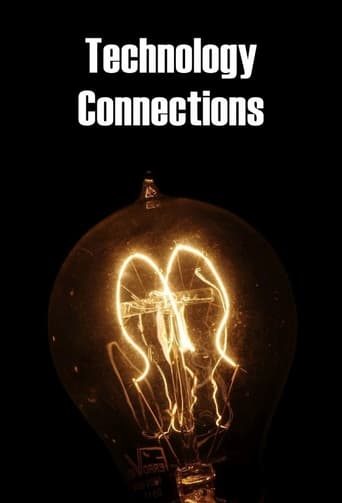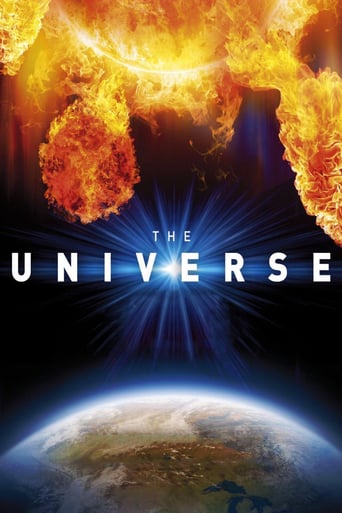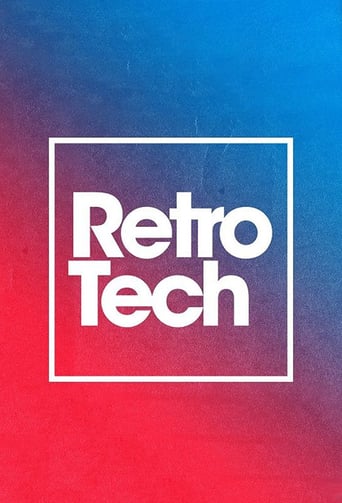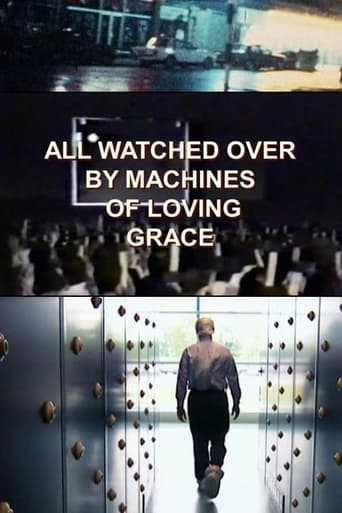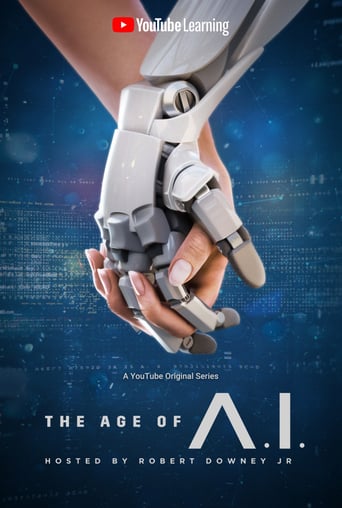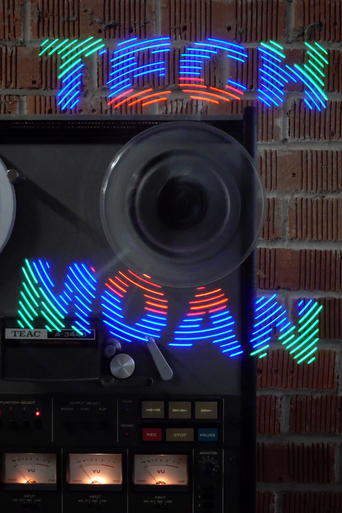Technology Connections Season 3
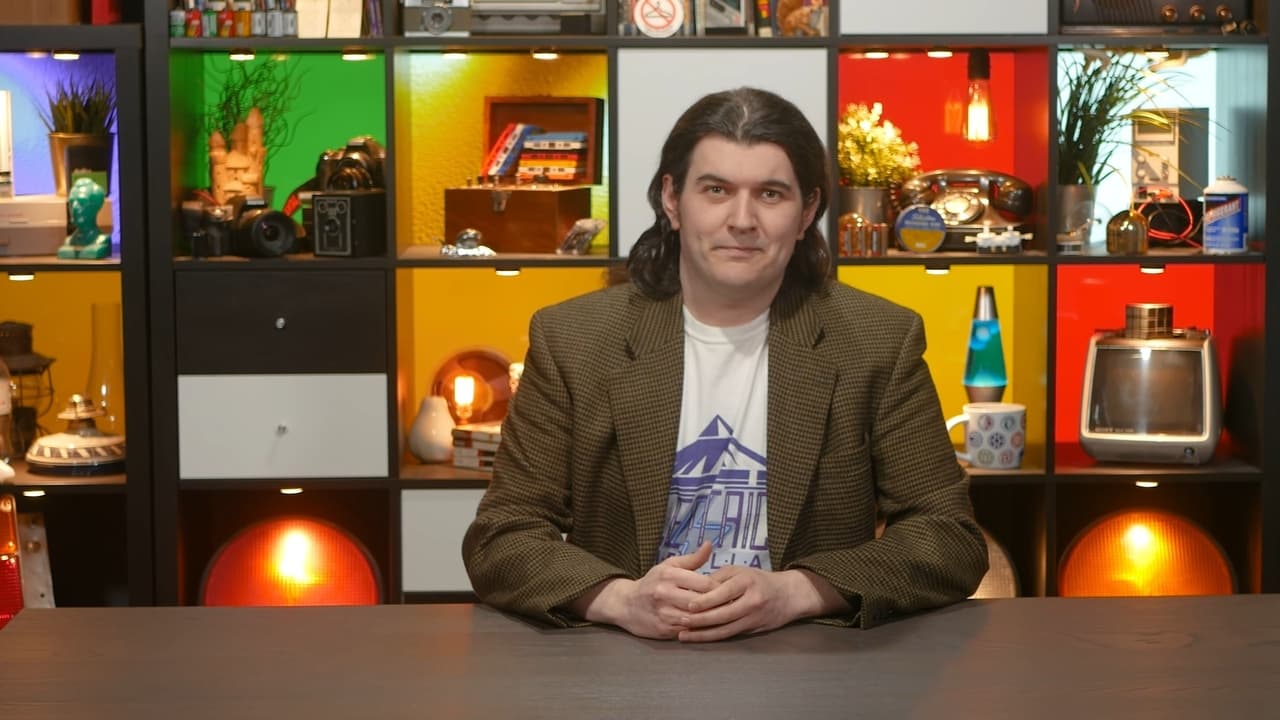
Technology Connections is a series of YouTube videos that explores numerous aspects of technological history, including how things work, the way things developed, and anything in between. There is no limit to what kinds of tech could be covered — one minute you may be learning about how electron guns draw pictures on an analog television, and the next you might be discovering that your modern toaster is a piece of junk.
Watch NowWith 30 Day Free Trial!
Technology Connections
2015
Technology Connections is a series of YouTube videos that explores numerous aspects of technological history, including how things work, the way things developed, and anything in between. There is no limit to what kinds of tech could be covered — one minute you may be learning about how electron guns draw pictures on an analog television, and the next you might be discovering that your modern toaster is a piece of junk.
Watch Trailer
With 30 Day Free Trial!
Technology Connections Season 3 Full Episode Guide
Throughout much of the analog television era, Sony was the fairly undisputed king of TVs. Their Trinitron picture tube was a universally well received technology and made a number of important improvements on the standard color picture tube. This is the story of its creation.
In this installment on analog color television, we take a look at some odds-and-ends from the last video. Sit back, relax, and enjoy an eclectic jaunt into the realm of shadow masks, dubious inventions, weird mathematics, and more.
RCA's attempt at creating a new color television standard that would be compatible with existing black and white TVs initially faced technical challenges. However, it was an obviously great idea from a backward compatibility standpoint, and the National Television Systems Committee latched onto this idea and helped to propel RCA's idea to the real world. This is that story.
If you're anything like me, the countless light displays you'll find around the average neighborhood during the holiday season are always welcome. But there's a certain type of light set that seems to be disappearing that I certainly hope stays around a little longer. In this video, you'll learn a little bit about how fairy light sets are made, how they work, and how a particular type of light strand pulls this all together to make my far-and-away favorite kind.
In this video we explore how we added color to everyone's favorite passive entertainment medium. Modern color broadcasting began in 1954 after years of experimentation, and this video will teach you the early history.
In this video we explore Digital ICE, an image processing technique involving infrared light, photographic film, and a dash of algorithmic magic.
Philo Farnsworth's Image Dissector was the heart of the first television cameras. This video tells the story of the early days of television, and shows how these early video tubes worked.
Meet the grandfather of the compact fluorescent light. This device from GE is really interesting and ahead of its time, but far too weird to gain widespread acceptance. GE manufactured these adapters to shoehorn the standard circline tube into more everyday applications, and the result is kinda weird. This video's a quick exploration of this early attempt to bring the energy saving virtues of fluorescent lighting into the domestic arena.
While the CFL is pretty much done being a thing these days, it was a really great invention for saving energy. But some people claimed they caused them headaches. In this video, I explore the reason that fluorescent light can indeed cause headaches or eyestrain in sensitive people, and I explain why that wasn't an issue with the CFL. Then we explore the modern LED bulb and how it actually is bringing the cause of this flicker back.
John Logie Baird is often considered to be the inventor of television, but not of television as we know it. His mechanical television is a remarkable invention for its simplicity, but as you'll soon see, it would never have been all that practical.
Have you ever wondered how old-school television worked? It seems almost impossible for a device to make moving images without a computer being involved. Yet analog television is very, very old. How on Earth did it work? Find out in this video.
This is a much fairer comparison than using the Panasonic unit as the VHS playback device. Many people believe that Beta was a vastly superior product to VHS, but I think this was mostly marketing prowess on Sony's part. People seemed to think that they were giving up something of quality if the went with VHS over Beta. But as this video will demonstrate, I don't think that was really the case.
This is the continuing exploration of Sony's repeated missteps in the development and marketing of the Beta videotape format.
The late 1970's and early 1980's were a frightening time to be a video enthusiast. Two formats are duking it out and trying to assert their dominance, and although Sony was first* to market with their Betamax machine, they were caught off guard by JVC's competing VHS system which, rather than focus on pedantic details like cassette design and technical perfection, strived to make a cheap, versatile format that worked.
We've been told that our laptops can watch us without our knowledge. That little indicator light? Worthless. Hackers can get around that. But why? There's a simple way to make sure this is impossible, which is explored in this, the very first episode, of Stupid Design.
Ever wonder why the gas-fired furnace is still so prevalent? Why isn't electric heat the standard? Well, wonder no more as we explore the economic and practical reasons the gas-fired furnace is so ubiquitous in colder climates, and how in the future this is almost certainly going to change.
In this video we discuss the Dolby Noise Reduction systems found in consumer cassettes decks and how they work. Though technically very simple, Dolby B noise reduction provides a very effective means of reducing audible tape noise, and was ubiquitous throughout the cassette's life. Dolby noise reduction was such an important part of their legacy that the company still pays homage to it in their logo. The "D"s in the Dolby Double D logo are really the shape of audio tape heads.
These days a VCR seems more quaint than anything else. But in fact, there's a device inside every VCR that solved what seemed to be an unsolvable problem. The video head drum is a fascinating solution to the complex problem of tape speed, and therefore I think it deserves to be remembered. Plus, the video head drum shares some motor technologies with modern hard disk drives. So there's that.
Free Trial Channels
Seasons


